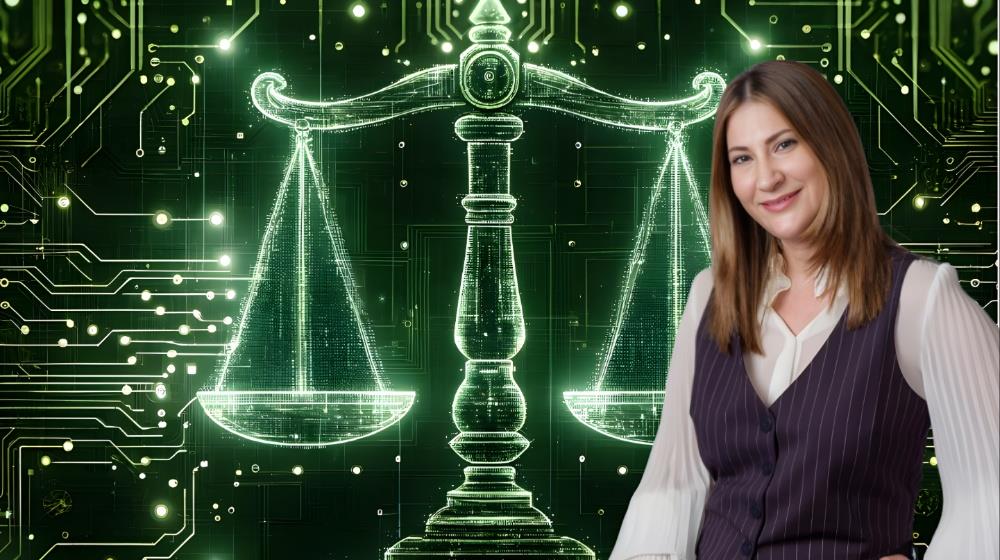"Technology, and in particular AI, has the ability to massively change the day-to-day work of lawyers. Document production, research and forensic aspects of the profession will likely change beyond all recognition," Polina Christodoulou, Partner, Head of Commercial Regulatory, George Z. Georgiou & Associates LLC (GZG) suggests.
In a recent interview with GOLD magazine, the expert also revealed, "We view adaptation to technology as an essential step and our focus is on the human factor."
Among other things, Christodoulou also talkw about evolving client expectations and the challenges the legal sector is currently facing and explains why those who prioritise adaptability and resilience will be most likely to thrive.
Evolving client expectations, disruptive technology and growing competition are forcing law firms to rethink the way they deliver legal services. How is your firm adapting to this new reality?
GZG has its 20th anniversary this year and adaptation has been an essential factor in its growth from a sole practitioner in 2005 to a firm of more than 80 staff in 2025. Key recent developments have been the use of technological solutions for collaborative working and, of course, AI-based solutions. We introduced remote working and collaborative platforms in 2020 and have recently partnered with Casepal to develop AI-enabled legal tools. Both initiatives provided immediate benefits.
We view adaptation to technology as an essential step and our focus is on the human factor. We concentrate on using technology to create more time and opportunities for our people to share their skills and interact better with our clients and each other. Our goal is to provide a first-rate service to our clients, enhance the potential of our team and provide a fulfilling and engaged work environment for all.
How have client priorities evolved and, looking ahead, which areas do you expect to demonstrate the most rapid growth?
Typically, a client’s reason for contacting a lawyer falls into one of three broad areas: creating an opportunity, avoiding a future problem or solving an existing problem. Traditional priorities remain a successful outcome, costs, speed, quality and, critically, trust. These broad points are unlikely to change radically, but clients’ expectations of cost and speed and their perception of quality have evolved.
Their expectations on accessibility and speed of response have already been heavily impacted by the availability of email, teleconferencing and document exchange capabilities. Firms are expected to use these tools and short-notice availability has been an expectation for some years.
Similarly, we anticipate that clients will adopt new technologies for communication and data sorting, such as AI Large Language Model-enabled tools, and will expect law firms to do the same. We anticipate that AI tools will transform the forensic and due diligence sectors and radically change the costs involved.
In other areas, the transformation will be real but more subtle and nuanced. In the mid-term, we anticipate that AI tools and telecoms capabilities will also drive a “push-back” towards face-to-face interaction on matters of importance where trust is critical. We expect that lawyers who blend a high level of technological familiarity with first-rate client care skills will attract a premium.
The local legal profession is facing internal headwinds, from the stalled e-Justice system to the uncertainty surrounding the proposed Single Supervisory Authority. In your view, what are the most pressing challenges that need to be addressed?
The most pressing challenges have been with logistics in the court system, the digitalisation process and heavy compliance burdens on many sectors, resulting from the volatile international regulatory and sanctions framework. The impact of regulatory uncertainty has forced all firms to focus significant resources on compliance and risk and, as a result, client onboarding is an onerous process that does not compare well with competitor jurisdictions. The same issue in the banking sector has adversely affected the competitiveness of the island as a whole, creating a double impact on the legal sector.
Measures that improve certainty and align processes with both EU regulation and commercial practices will be an improvement. The initial interim solution on digitalisation has already had a positive impact on the Court system and although there have been setbacks in implementing the full project, the value of the digitalisation process has already been demonstrated and partially delivered.
The other very positive measure is the establishment of a commercial court and the corresponding drive to increase judicial capacity. The active role of the Bar Associations, the broad consensus in Cyprus on what is needed and the constructive actions already in progress are all cause for real optimism.
How are international geopolitical tensions, trade-related uncertainty and other problems shaping the business and investment landscape in Cyprus?
We observe volatility, positive and negative, in investment appetite as a result of the reactions of markets and states to geopolitical tensions. The obvious risks are the consequences of climate change, the erosion of international organisations and a realignment towards multipolar economic and political frameworks. The overarching risk issue is that these current geopolitical issues are sufficiently different in terms of magnitude and complexity that they are likely to exceed prior historical precedent.
There are short-term gains to be made where volatility exists but where inflexible reliance is placed on lines of business or geopolitical relationships, inherent risks may be challenging to manage. In an environment where risk assessment is, by its nature, challenging, those that prioritise adaptability and resilience will be most likely to thrive.
Finally, which aspect of the legal industry do you expect to be most disrupted by technology over the next five years and how are you preparing for it?
Possibly the greatest impact will be on human capital. Technology, and in particular AI, has the ability to massively change the day-to-day work of lawyers. Document production, research and forensic aspects of the profession will likely change beyond all recognition. We anticipate that, along with incredible jumps in data analysis capability, there will be enhanced awareness of the importance of the human factor and human social interaction. Used wisely, there is an opportunity to provide a significantly improved service for clients and enhance the intellectual and social quality of life of legal professionals.
This interview first appeared in the August edition of GOLD magazine. Click here to view it.









